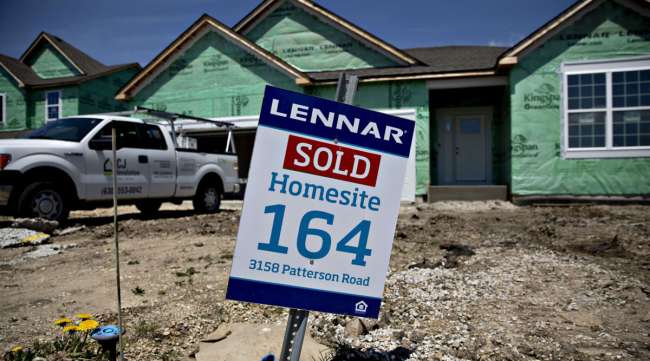Bloomberg News
New-Home Sales in June Surge to Highest in Almost 13 Years

[Ensure you have all the info you need in these unprecedented times. Subscribe now.]
New-home sales in the U.S. increased to an almost 13-year high in June, fueled by record-low borrowing costs and adding to evidence that residential real estate is a bright spot for the economy.
Purchases of new single-family houses climbed 13.8% to a 776,000 annualized pace, from an upwardly revised May increase of 19.4%, government data showed July 24. The June pace exceeded all economists’ forecasts in a Bloomberg survey that had a median estimate of 700,000. The median selling price rose 5.6 % from a year earlier to $329,200. as inventory shrank.
Mortgage rates at historic lows — along with more stable finances for upper-income Americans during the pandemic — are bolstering demand and will help spark a pickup in residential construction activity that supports the economy’s recovery. Sales may nonetheless fall short of pre-pandemic levels as millions of jobs have been lost and many areas of the country experience a pickup in coronavirus cases.
An S&P gauge of homebuilder shares pared losses, trading 0.8% lower at 10:17 a.m. in New York after losing as much as 1.9% earlier.
All of the four major U.S. regions showed higher home sales in June. Purchases jumped 18% in the West, and climbed 7.2% in the South. In the Northeast, the smallest of the four major regions, sale surged 89.7%.
The supply of new homes at the current sales pace fell to 4.7 months, an almost four-year low. The report also showed signs that builder backlogs are growing; the number of properties sold for which construction hadn’t yet started climbed to 233,000, the most since November 2017.
New homes account for about 10% of all purchases and are considered a more timely barometer than sales of previously owned properties which are calculated when contracts close. National Association of Realtors data this week showed sales of existing homes surged in June.
Changes in the seasonally adjusted new-homes data are volatile and have a wide margin of error. There’s a 90% chance that the monthly percentage change was between a 4% decline and a 31.6% increase, according to the U.S. Census Bureau. The report is published jointly by Census and the Department of Housing and Urban Development.
Want more news? Listen to today's daily briefing:
Subscribe: Apple Podcasts | Spotify | Amazon Alexa | Google Assistant | More




